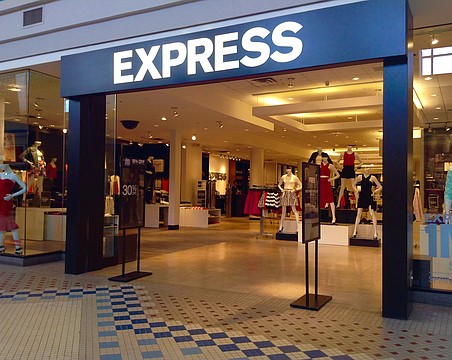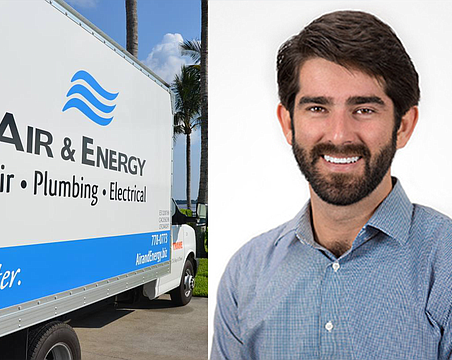Consumer Victory?
Plaintiffs in a truth-in-lending action against Bill Heard Chevrolet Inc.-Plant City win a favorable ruling on appeal.
By David R. Corder
Associate Editor
About four years ago attorney Theresa Wigginton saw an increase in phone calls to her Brandon practice about alleged new vehicle sales fraud. Many of the callers complained about purchases at Bill Heard Chevrolet Inc.-Plant City.
It surprised Wigginton, who primarily focused on personal injury law since graduation in 1995 from the Stetson University College of Law. During the early years of her practice, she gravitated by chance to consumer law. But in those early years prospective clients would call, perhaps, once a month to complain about a car-buying experience.
The increased frequency of the calls concerned Wigginton. Sometimes she handled two to three complaints a week. It piqued her interest enough look deeper into the Plant City auto dealer's use of condition-precedent credit contracts. Such contracts allow new car buyers everywhere to drive away almost instantaneously from the dealership with a new vehicle even if a dealer hasn't completed financing arrangements.
Only these car buyers told Wigginton stories about how Bill Heard representatives would call a day or so later to say they had to sign new retail sales installment contracts. But the deals also changed. Promised low annual percentage rates often escalated. If customers wanted out of the deal, the dealership's representatives purportedly threatened to keep their trade-in vehicles or their down payments as compensation for mileage the consumers put on the new vehicles.
Wigginton suspected the practice violated Florida's Deceptive and Unfair Trade Practices Act, the state's Motor Vehicle Retail Sales Finance Act, the federal Truth in Lending Act (TILA) and Regulation Z, the Federal Reserve code that enforces TILA.
Because of the number of complaints, Wigginton sought help from J. Daniel Clark, a class action attorney at the Tampa law firm of Clark Charlton & Martino PA. In November 2001, the two filed a petition on behalf of plaintiff Randal S. Bragg, and others similarly affected, against Bill Heard Chevrolet in the 13th Circuit. The complaint states the dealership included certain add-ons, such as window security etching and a vehicle alarm, in Bragg's final retail installment contract without his knowledge. The complaint also listed as co-defendants WFS Financial Inc., Triad Financial Corp. and Affiliated Financial Corp.
In response, Bill Heard attorney Chris Coutroulis of Carlton Fields PA successfully petitioned for the removal of the lawsuit to the Tampa division of the U.S. District Court. Within the next nine months, Coutroulis led a team of defense attorneys that persuaded U.S. District Judge James S. Moody Jr. to dismiss the lawsuit. Unable to secure a rehearing, Wigginton and Clark appealed the decision in March last year to the 11th Circuit U.S. Court of Appeals.
Late last month, the appellate court reversed Moody's decision and remanded the case for rehearing and possible trial. Now the real work begins for Wigginton and Clark: convincing Moody to certify the lawsuit as a class action. But Wigginton thinks the appellate court delivered a convincing message.
"By any stretch of the imagination this is a very, very important case for consumers," Wigginton says. In explaining the potential impact of the appellate court decision, she adds: "I think that it is a notice to automobile dealers that they're going to have to begin playing by the rules."
Spot delivery
The deal between Bragg and the dealership seemed simple enough. He agreed to pay $600 down and trade-in an older model car for $500 in exchange for a new 2002 Chevrolet Silverado pickup. Bragg signed a bailment agreement for vehicle spot delivery, which gave him immediate possession of the truck. Then he signed two standard simple interest vehicle retail installment contracts, though the dealership purposefully didn't sign either.
Three days later the dealer required Bragg to sign two new purchase contracts and two new retail installment contracts, which the dealer backdated to the day Bragg took possession of the vehicle. At the proposed creditor's apparent insistence, the annual percentage rate increased by 24 points on the third installment contract and by 39 points on the fourth installment contract. The dealer ultimately assigned the fourth installment contract to Triad Financial.
The lack of the dealer's signature on the first two installment contracts became a central point in Moody's decision to dismiss the action. Without the dealer's signature, Moody concluded Bragg never consummated the deal under Florida contract law. He stated the contract could not be consummated until the dealer sold it to a lender.
"The (U.S.) Supreme Court has held that courts, like this court, must grant great deference to the official staff commentary of Regulation Z," Moody states in his opinion. "The official commentary on the definition of consummation indicates that state law, not Regulation Z, determines when a consumer becomes contractually obligated. Florida contract law construes contract clauses like those in this case to create a condition precedent to contract formation."
In response, Wigginton and Clark recited the precedent the 4th Circuit U.S. Court of Appeals set in February last year in Nigh v. Koons Buick Pontiac GMC Inc. That appellate court concluded that Regulation Z does regulate unfunded financing agreements - such as the ones Bragg signed. But the defendant in Nigh v. Koons also prevailed earlier this year by convincing the U.S. Supreme Court to hear its appeal on the matter.
On behalf of Koons Buick, the American Bankers Association, the American Financial Services Association and the Consumer Bankers Association assailed the 4th Circuit decision.
"If left in tact, the (4th Circuit) panel's holding threatens to have an enormous and harmful impact on the consumer lending industry," those groups stated in an amici curiae brief filed with the Supreme Court.
The financial groups also cited how the 4th Circuit's decision already had negatively impacted the financial services industry.
"A TILA judgment of $1,000 that was imposed in October 2002 for a technical violation of the statute was amended last spring (2003) to the uncapped amount of $13,345.82, plus $18,871 in attorneys' fees ...," according to the financial groups' brief.
The 11th Circuit also relied on Nigh v. Koons as part of its reason to reverse Moody's decision.
"Regardless of 'the degree of commitment of the lender' contained in the agreements' condition precedent ... Bragg's signature on these documents rendered him contractually obligated to the purchase of credit and thus constituted consummation for purposes of TILA disclosures," the 11th Circuit panel states. "To give full effect of TILA's goal of providing meaningful and timely disclosure of important credit terms, we hold that in a financing agreement containing a condition precedent where the condition of obtaining financing is within the exclusive control of the seller and third-party lender, consummation occurs when the consumer signs the contract."
Yo-yo concept
Just as it did in Koons v. Nigh, the National Association of Consumer Advocates also filed an amicus curiae brief on behalf of Bragg in his appeal against Bill Heard Chevrolet.
The association of consumer lawyers and advocates argued the Plant City auto dealer improperly disclosed the annual percentage rate because the company backdated the interest charged without properly calculating the rate. That violates Regulation Z, it claims.
"The trial court read each (retail installment contract) in conjunction with the other documents and decided each (retail installment contract) was a condition-precedent contract," the association states in its appellate brief. "Such alleged 'conditional' contracts are subject to tremendous abuse in the market because of the misrepresentations necessarily involved. In an alleged 'conditional' contract sale, the dealer uses contradictory documents to pull a consumer back and forth like a yo-yo.
"The claim that a credit sale is conditional is nothing more than a fraudulent bait-and-switch that strings the consumer along like a yo-yo," the group added. "The dealer first lets the consumer leave with the car, and then pulls on the string to bring the consumer back to the dealership to sign new documents. The string is usually the down payment or trade-in that the dealer holds, and to yank the consumer back the dealer claims the credit contract was not approved."
But such allegations are baseless Carlton Fields Coutroulis says in a written statement.
"Bill Heard Chevrolet is disappointed that the 11th Circuit Court of Appeals in Atlanta disagreed with the federal district court in Tampa and ruled that a customer can sue a car dealership for alleged Truth in Lending Act violations, even if the customer did not buy a car from the dealership or finance the purchase based on allegedly inadequate credit disclosures," Coutroulis writes. "Bill Heard Chevrolet is considering asking the appellate court to reconsider its ruling."
Nevertheless, Coutroulis expects his client to prevail at trial.
"Even as it stands, the ruling is a narrow one that does not address the merits of the plaintiff's claims that Bill Heard made inadequate credit disclosures or engaged in improper sales practices," he adds. "The appellate decision comes at an early stage in the litigation. The court simply ruled that the plaintiff could go forward with his suit at this time, not that the suit will ultimately be successful. At this procedural point, for purposes of the appeal, the appellate court was actually required to accept plaintiffs' allegations as true, whether or not those allegations ultimately can be proven."
Confident his client is right, Coutroulis says he intends to stage a vigorous defense.
"After all the facts are considered, we believe the courts will conclude that Bill Heard Chevrolet did not violate the law," he says. "It is easy to make wide-ranging charges and allegations of wrongdoing. It is quite another matter to demonstrate that those allegations have merit. That has not occurred."
That's not how Wigginton sees it, however. The one-time interior designer/real estate broker/free-lance journalist says it is evident the Plant City dealership took advantage of unsophisticated, mostly blue-collar, consumers who rarely understand their rights under the Truth in Lending Act and Regulation Z. She is convinced in-depth deposition and discovery will help prove her clients allegations.
"I've had a lot of clients who said when they were brought back by the dealership to sign second, third and fourth contracts; that when the consumer would say, look just give me my money back or give me my trade-in, the car dealer would use the other argument that 'we have a deal, that we just have to make some changes because we couldn't get this or get that' or the interest rate is a little different.
"They're just told they obligated: 'You signed it and you can't get out of it,' " she adds. "Then they use that to force them to enter into these new retail installment contracts. The client will say, 'If I can't get my car back, I'm going to lose my job if I don't go to work tomorrow.' So they have this additional pressure to sign these additional contracts because they're told they can't get out of the deal."





